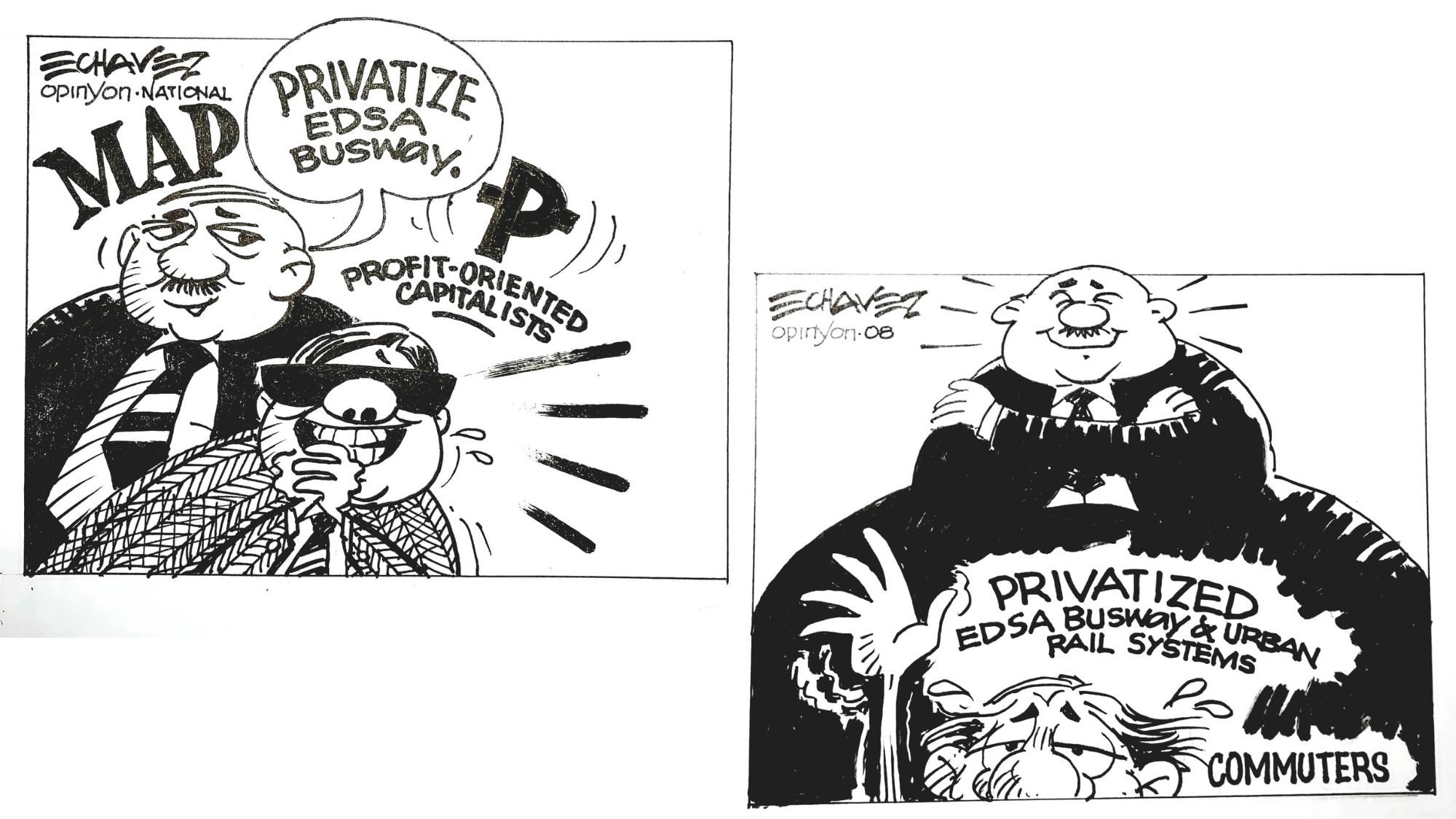Privatizing EDSA Busway and urban rail systems, as proposed by the Management Association of the Philippines (whose members are profit-oriented capitalists) could lead to exorbitant fares for commuters.
Analysts worry that profit-driven companies would end up being the only beneficiaries of such privatization since MAP’s recommendation is for government to first upgrade/improve the busway and railway systems before offering to private companies.
A business professor proposed the privatization should be balanced meaning the government should continue to protect the riding public from exorbitant fares and underinsurance.
Government interference must be done in a way that won’t obstruct further development and the goal of private companies to recoup their investments while improving transport services, he added.
MAP’s proposed privatization is a hybrid mode meaning the government will provide the infrastructure, while a private concessionaire will operate the service and maintain the facilities under an operations and maintenance concession.
But transport expert Rene S. Santiago said any privatization effort “must wait” for the revision of the implementing rules and regulations (IRR) of the Build-Operate-Transfer (BOT) Law.
“Midnight amendments to the IRR have turned PPP (public-private partnerships) into a game of masochism for private investors,” he said.
“The government should look with critical scrutiny the hybrid proposals from the private sector, as this might grossly underestimate the actual value of public funding in infrastructure projects while overestimating the value of private investment in operating and maintaining public utilities and services,” warned Terry L. Ridon, a public investment analyst and convenor of think tank InfraWatch PH.
If the private sector would like to take over transport services currently under government control, any PPP arrangement should reflect the value of the public sector’s investment in infrastructure projects.
Ridon is also cautioning that private sector has no monopoly over efficient operations of public utilities and public services.
Ligon opined that privatization “does not automatically guarantee efficiency, although privately- run transportation systems have more advantages.”
Past experiences in the last 30 years showed that private sector management results in better outcomes provided government restrains itself from behaving as a backseat driver. Santiago said he has long advocated for PPP in the railway sector under balanced allocation of risks. In fact, privatization of MRT was included in the top 10 priorities of 2010.
Santiago said the PPP structure was faulty, and it failed to take off in the case of LRT1 in 2015.
Light Rail Manila Corp. (LRMC), LRT’s private operator, said in May it had filed a request for arbitration with the International Chamber of Commerce over its dispute with DoTr and its attached agency, the Light Rail Transit Authority (LRTA).
LRMC wants to recover P2.67 billion in compensation claims and costs arising from delays in the implementation of fare adjustments for 2016, 2018, and 2020 said its parent company Metro Pacific Investments Corp
But he finds the privatization of EDSA busway “very strange” since all the buses running on EDSA are privately-owned so what elements of the busway provided by the private sector is in MAP’s mind.
Agreeably, MAP should offer more details other than motherhood statements.

